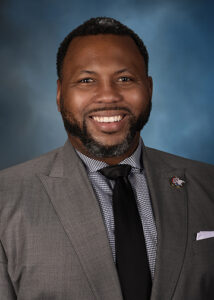CHICAGO — State Rep. Kam Buckner, D-Chicago, has introduced the Stadium Transparency and Responsible Spending (STARS) Act to ensure that any taxpayer-backed deal for a professional sports stadium is transparent, fiscally responsible and publicly vetted.
“Illinois families want and deserve responsible, transparent spending of their tax dollars,” Buckner said. “The cost of living is high, we have a president determined to take our economy in the wrong direction, and sending tens of millions of dollars to major sports teams in the hopes of a financial return that is far from guaranteed has to come with guardrails. We can’t take that risk and expect working people to bear the economic burden if it doesn’t pay off. That’s unacceptable.”
Continuing his track record of fighting for responsibility, Buckner filed House Bill 4152, the Stadium Transparency and Responsible Spending (STARS) Act, which makes a number of reforms to ensure transparency in state spending on sports stadiums. These include requirements for:
- A full public online disclosure of any stadium subsidy or tax incentive agreement at least 30
days before approval; - An independent, franchise-funded cost-benefit analysis conducted by the Commission of
Government Forecasting and Accountability (COGFA) of the 20-year fiscal impact; - At least two public hearings in the affected community to hear from residents, school districts,
libraries and first responders to testify on local revenue impacts; - Full reimbursement by the franchise for any lost property tax revenues for public schools,
libraries and emergency services; and - Full repayment of all subsidies plus 5% annual compounded interest if a franchise relocates or
fails to meet other economic commitments.
“Building up our state’s economy and securing long-term prosperity is about putting our money where it will do the most good, not spending it on magic beans and hoping for the best,” Buckner said. “I appreciate what great sports franchises have the potential to do for Illinois communities, but that doesn’t mean they get a blank check.”
